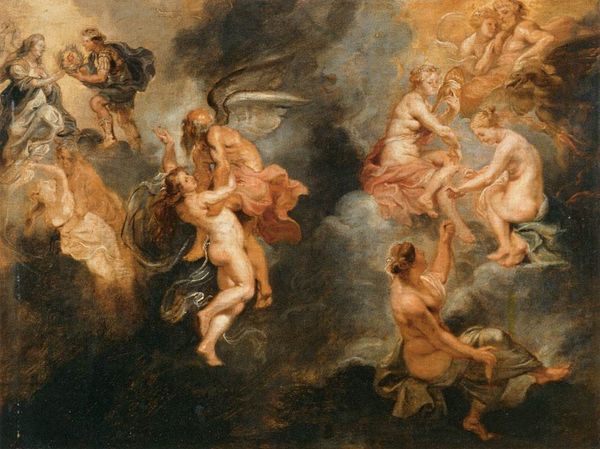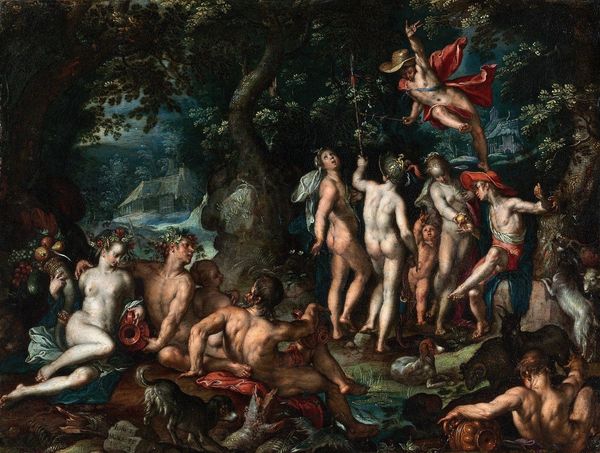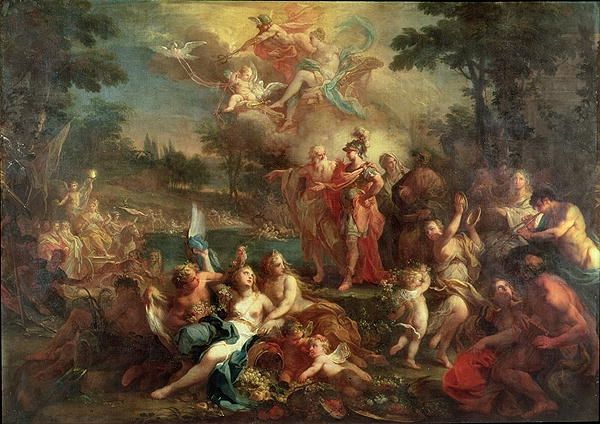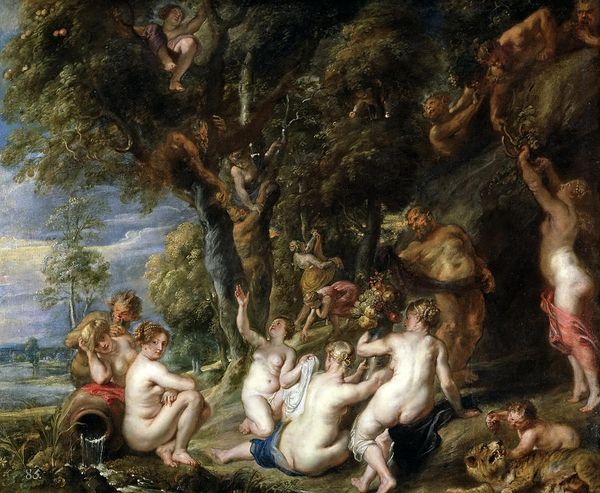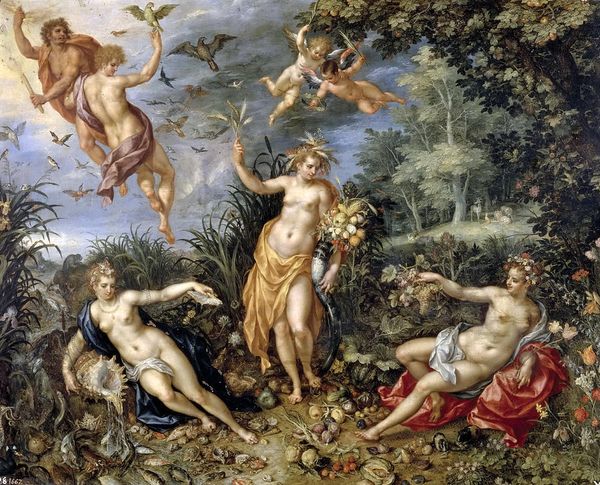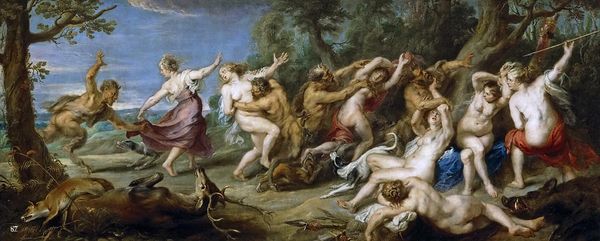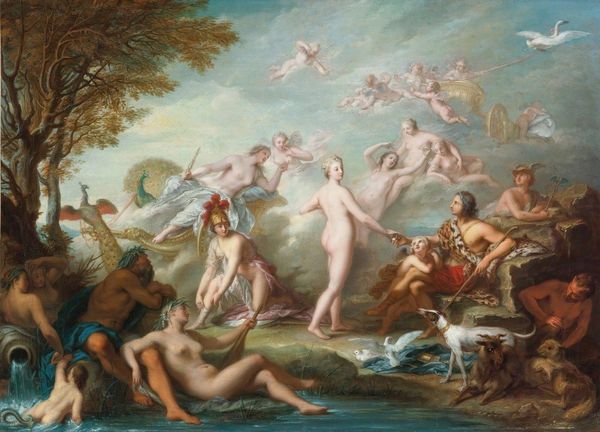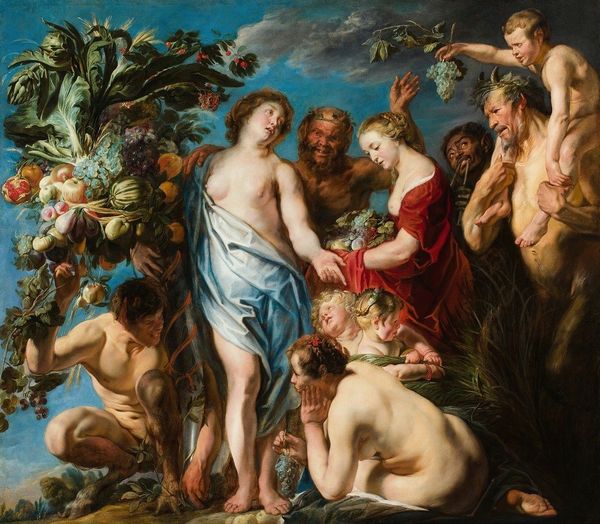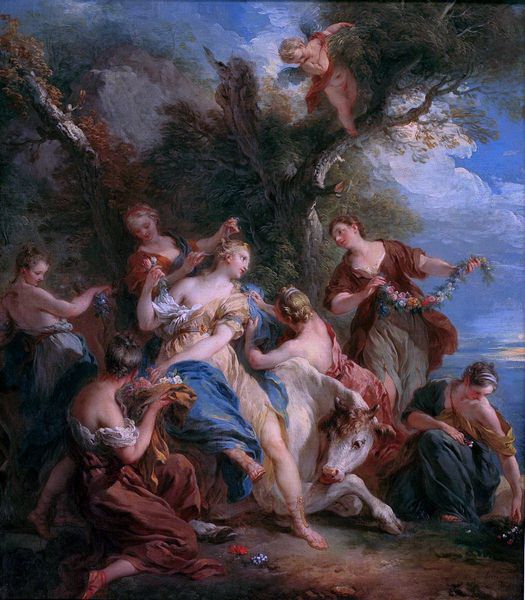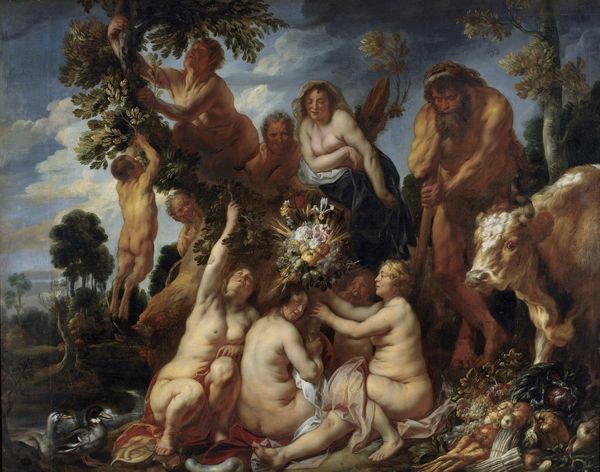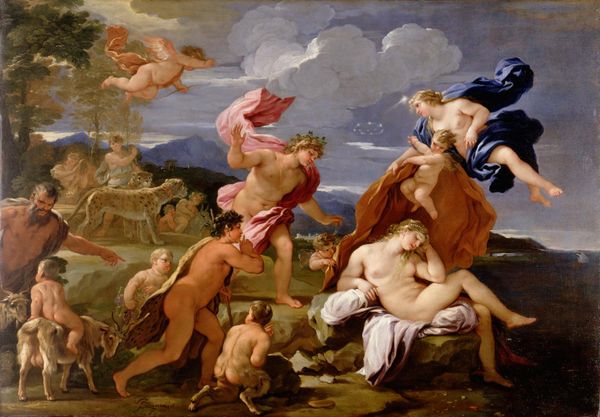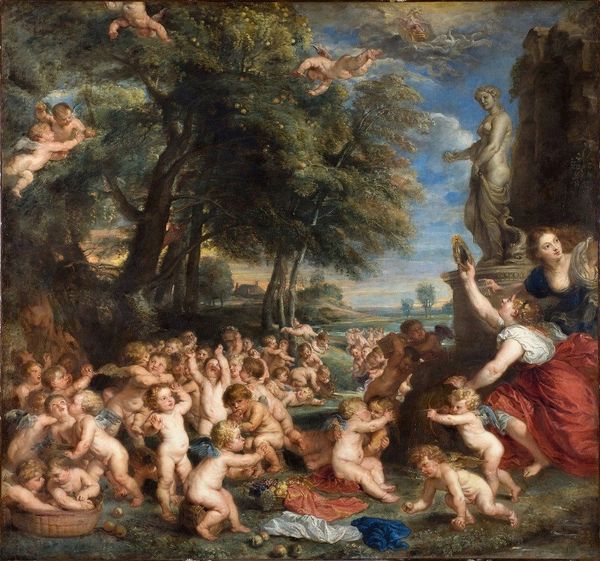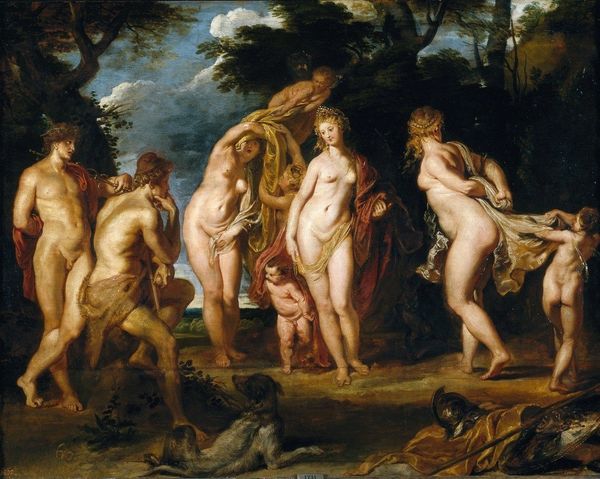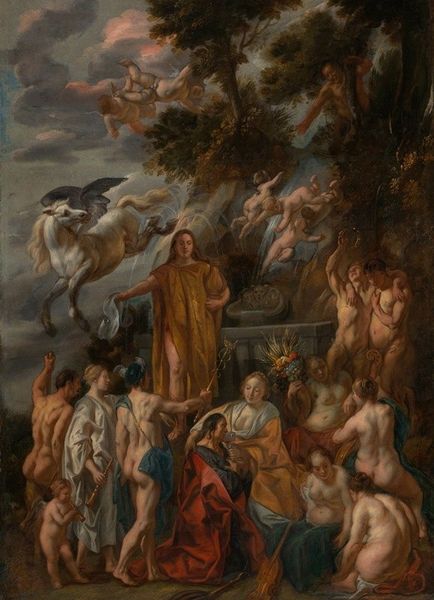
painting, oil-paint
#
allegory
#
baroque
#
painting
#
oil-paint
#
landscape
#
figuration
#
flemish
#
mythology
#
painting painterly
Copyright: Public Domain: Artvee
Peter Paul Rubens painted this bacchanal, The Feast of Venus, in the 17th century, using oil on canvas. It displays an imagined scene of a Roman festival honoring Venus, the goddess of love. Rubens was working in Flanders, now part of Belgium, at a time when the Catholic Church was using art to revitalize its image after the Protestant Reformation. In paintings like this, Rubens borrowed classical imagery to create a vision of earthly delight and abundance that reinforced the traditional order. The free sensuality of the scene, with its abundance of nude bodies, reflects a very particular moment in the history of European attitudes toward the body, when learned painters could reference classical antiquity to push boundaries of what was considered acceptable. Art historians use a variety of resources, including letters, diaries, and financial records, to understand the world in which artists like Rubens operated. This helps us interpret his work not just as an aesthetic achievement, but as a product of specific social and institutional forces.
Comments
No comments
Be the first to comment and join the conversation on the ultimate creative platform.
